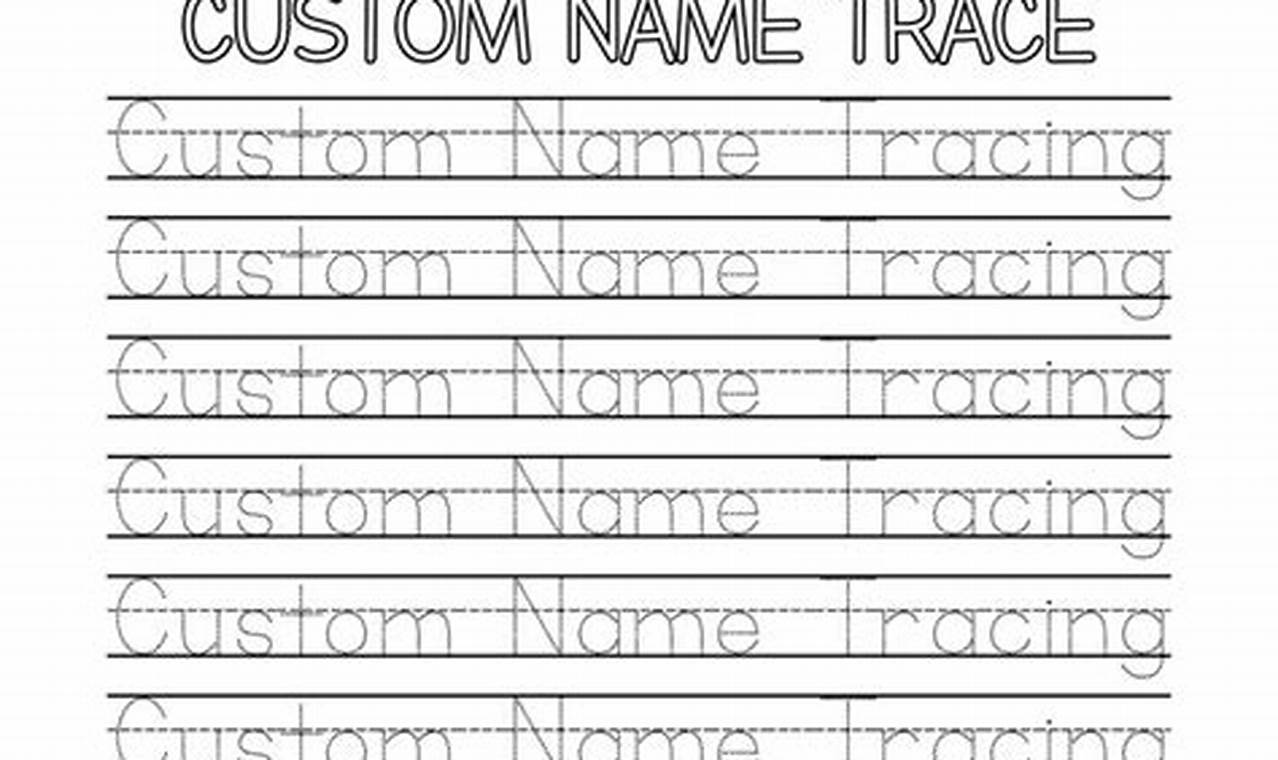Name tracing is a foundational activity in early childhood education, fostering crucial pre-writing skills. Engaging with personalized name tracing worksheets introduces children to the fundamental elements of writing, aiding in the development of fine motor skills and letter recognition, which are essential for future literacy success. These worksheets transform a potentially tedious task into an enjoyable and effective learning experience.
The utilization of a “personalized name tracing with favorite character” worksheet offers numerous educational advantages. It enhances fine motor skills by requiring precise hand movements, improves letter recognition as children repeatedly trace their names, and boosts concentration as they focus on completing the activity accurately. The presence of a favorite character can also increase motivation and engagement, making the learning process more enjoyable and less daunting. Ultimately, this activity fosters a sense of accomplishment and builds confidence in young learners.
This particular worksheet typically includes the child’s name printed in a traceable font, often dotted or outlined, that children can follow. Alongside the name, an image of their chosen favorite character is included, creating a visually appealing and personalized learning tool. The worksheet may also feature practice lines or blank spaces where children can independently write their names after tracing. Clear, easy-to-read fonts and ample spacing between lines ensure accessibility and ease of use for young children.
To maximize the effectiveness of the worksheet, introduce it in a calm and encouraging environment. Begin by showing the child how to hold a pencil correctly. Guide them to trace their name slowly and carefully, emphasizing the shape of each letter. Offer positive reinforcement and praise their efforts. If the child struggles, break the name into smaller segments or focus on individual letters. Encourage the child to say the letters aloud as they trace them, reinforcing letter-sound association. Regular short sessions are more effective than infrequent long ones.
To further enhance the learning experience, consider using related resources. Kidtraces.com offers a variety of printable alphabet tracing worksheets, letter sound games, and handwriting practice pages. Incorporating alphabet flashcards or engaging in interactive letter-building activities can complement the name tracing worksheet. Encouraging children to practice writing their names in different contexts, such as on artwork or greeting cards, can also reinforce the skills learned.
In summary, the “personalized name tracing with favorite character” worksheet is a valuable tool for nurturing early literacy skills and developing fine motor control. Its engaging design, combined with a structured approach, makes learning to write names a fun and rewarding experience. Parents and educators are encouraged to download this worksheet and explore the many other free resources available on Kidtraces.com to support continuous learning and skill development in young children.
Images References :
Looking for more useful options?
Check out recommended resources that others find helpful.
